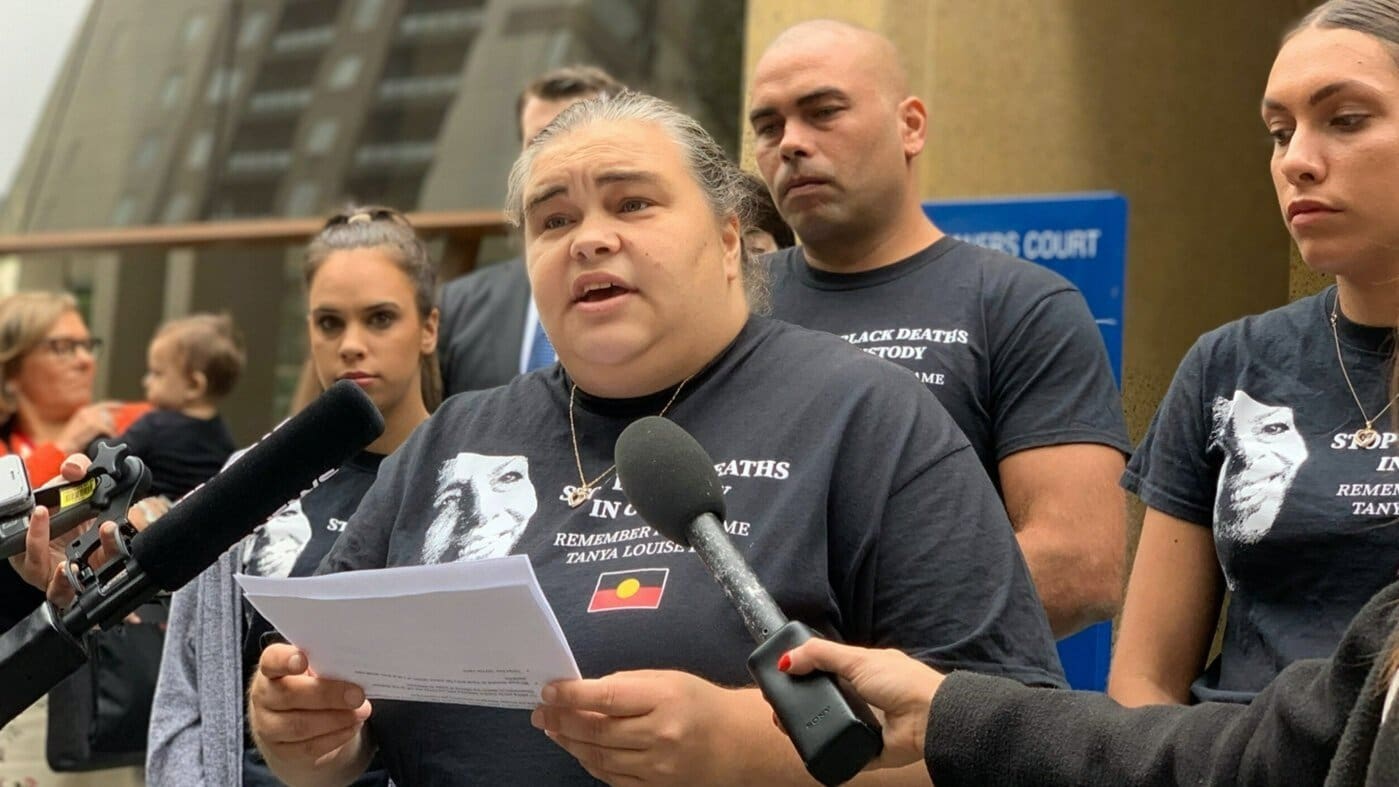Justice for Tanya Day
PROJECT |First Nations Justice
The Human Rights Law Centre supported the advocacy of the family Tanya Day, a proud Yorta Yorta woman who died in police custody, to secure a commitment from the Victorian Government to replace public intoxication laws with a public health response.

Tanya Day was a much-loved sister, mother, grandmother and community advocate. In December 2017, she fell asleep on a train from Echuca to Melbourne. A train conductor woke her up and, despite her doing nothing, deemed her unruly and triggered a series of events which culminated in the police arresting Tanya.
Rather than taking Tanya to a hospital, she was locked up in a concrete cell for being drunk in public. Tanya fell and hit her head on a number of occasions, but the police officers responsible for her care failed to properly check on her. She lay injured on the floor for three hours. When the police finally entered her cell, they called 000 but told an untrue story about how she fell. Tanya later died from a brain haemorrhage.
The Human Rights Law Centre represented the Day family in the coronial inquest into Tanya’s death. Throughout the inquest, the family’s legal team cross-examined over 30 witnesses over three weeks on whether systemic racism played a role in Tanya’s death.
In a landmark decision, the Coroner referred the Victoria Police officers involved in Tanya’s death to the DPP for criminal investigation, on the basis that “an indictable offence may have been committed”. In a decision that speaks volumes about police impunity, the DPP notified the Day family that they will not be prosecuting the police officers involved in Tanya’s death.
At the time of Tanya’s arrest, Aboriginal women were 10 times more likely for being drunk in public than non-Indigenous women. The decriminalisation of public intoxication was first recommended by the Royal Commission into Aboriginal Deaths in Custody over 30 years ago. Following extensive advocacy by the Day family, in November 2023, the Victorian Government finally decriminalised public drunkenness, a commitment made at the outset of the coronial inquest into their mum’s death.
This reform was a longstanding priority for the Human Rights Law Centre. Aunty Tanya was arrested for being drunk in a public place after falling asleep on a train and died after hitting her head in a police cell in 2017. Early reports show that the complete decriminalisation of public intoxication is helping thousands of people identified as intoxicated in a public place avoid arrest and the risk of dying in custody.
Instead, they are being supported to safely go home or attend sobering-up centres, in line with their rights to health, family and freedom from arbitrary arrest. We continue to work with the Day family, as a member of the Public Intoxication Reform Evaluation Advisory Group, to ensure the justice evaluation of the public intoxication reforms accurately analyses Victoria Police actions in the new public health response. As a member of Victoria Police’s Human Rights Advisory Group, the Human Rights Law Centre is well placed to continue the focus on this vital reform.

Tanya Day’s family hold a smoking ceremony before the inquest into their mum’s death in police custody. Credit: Charandev Singh



